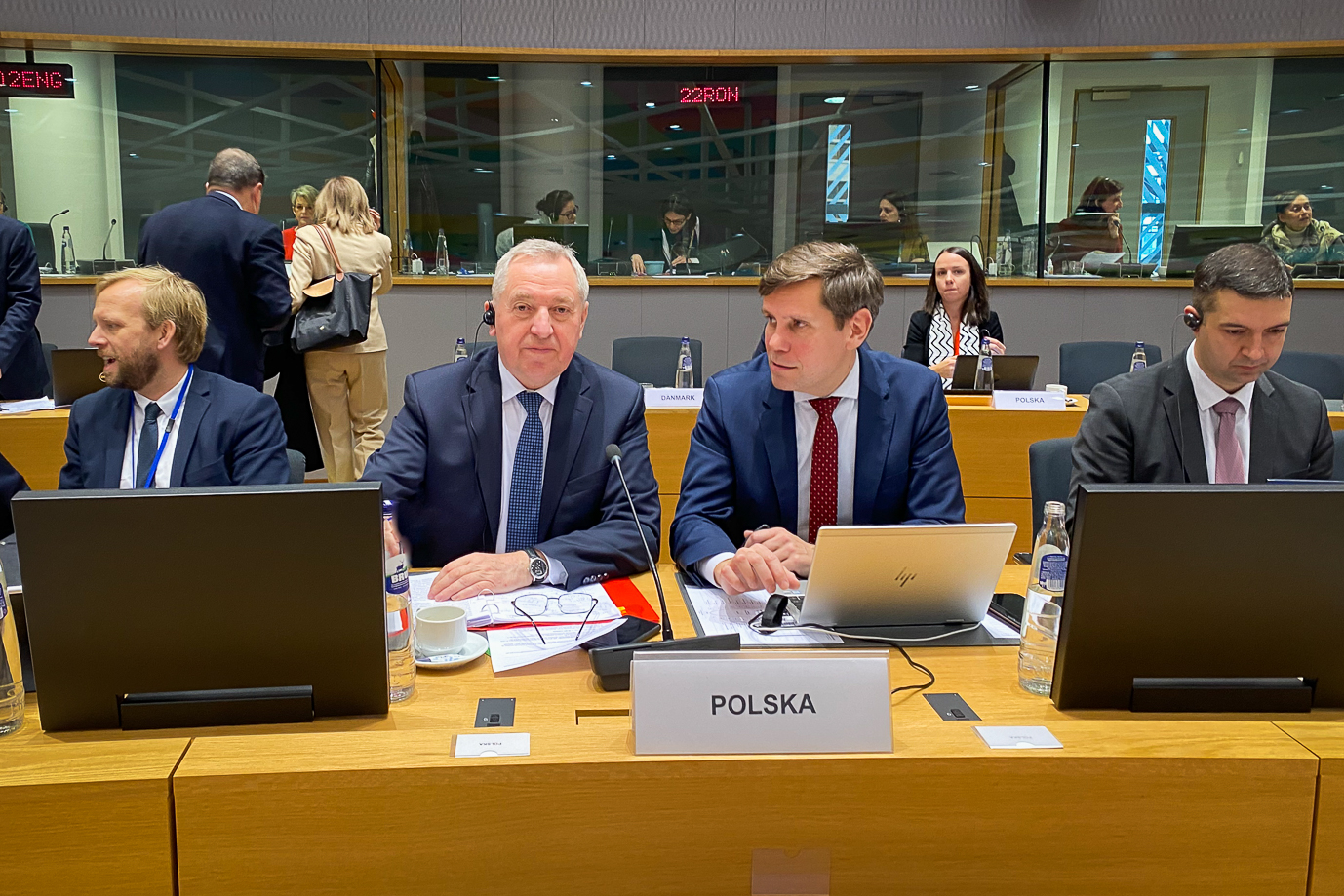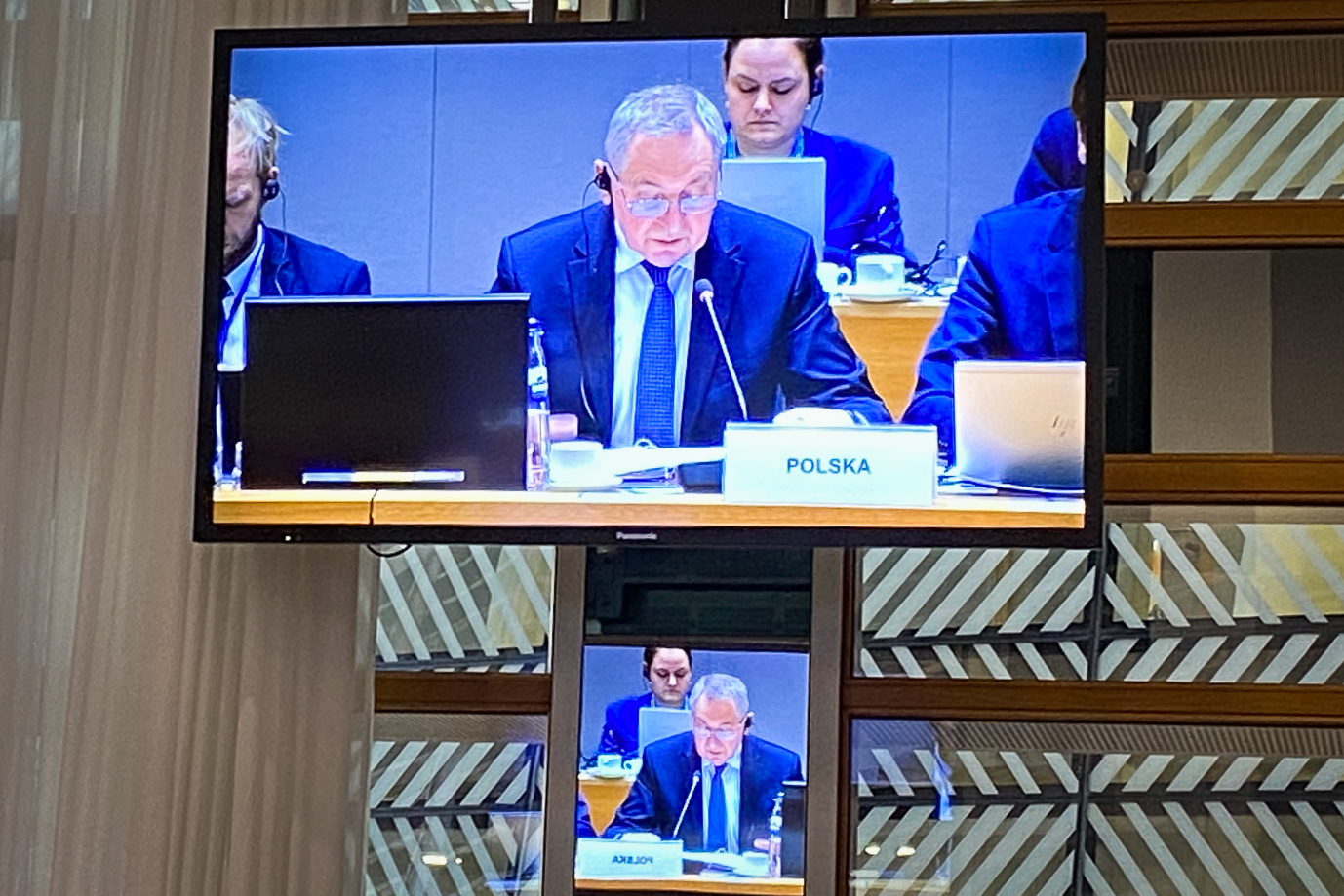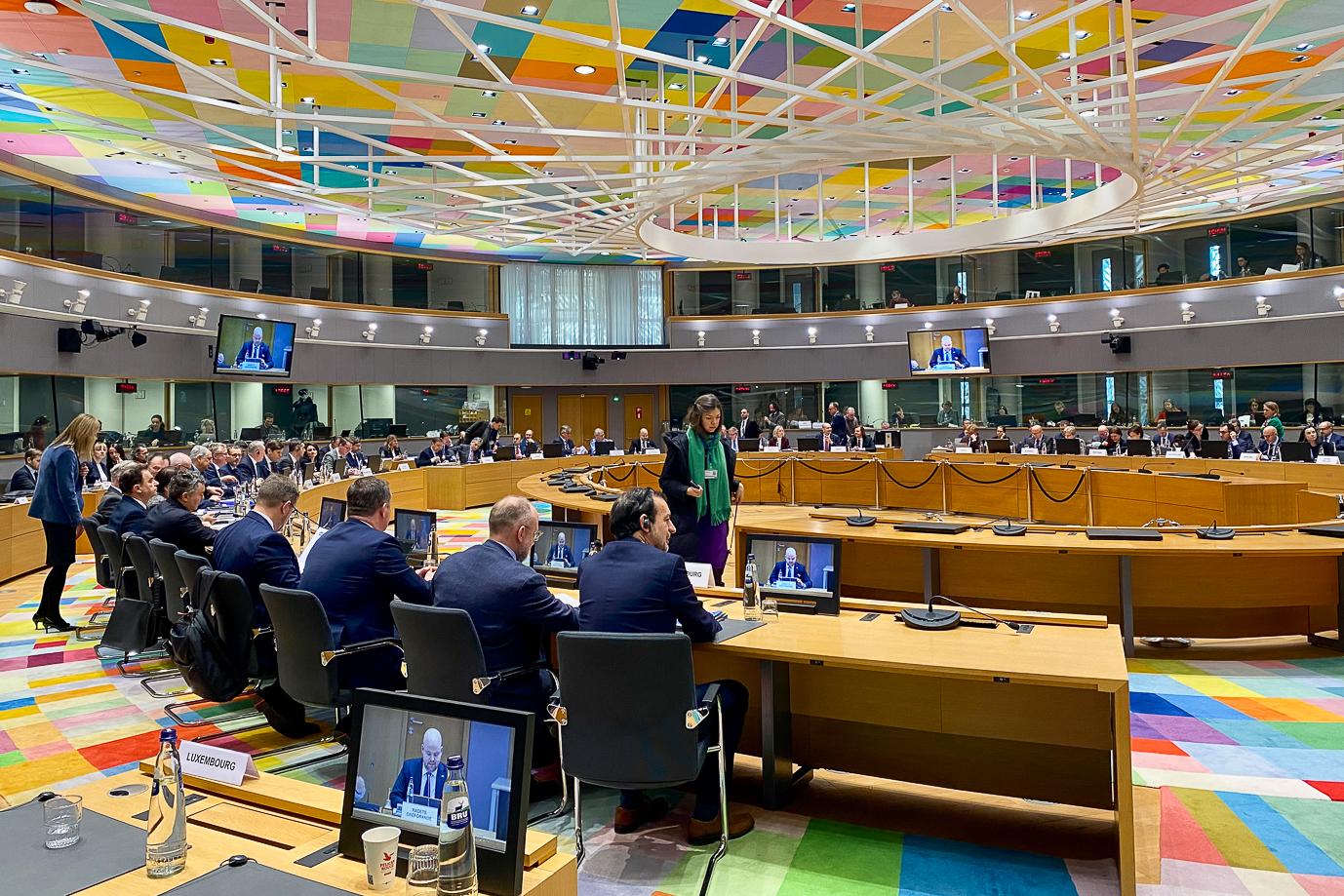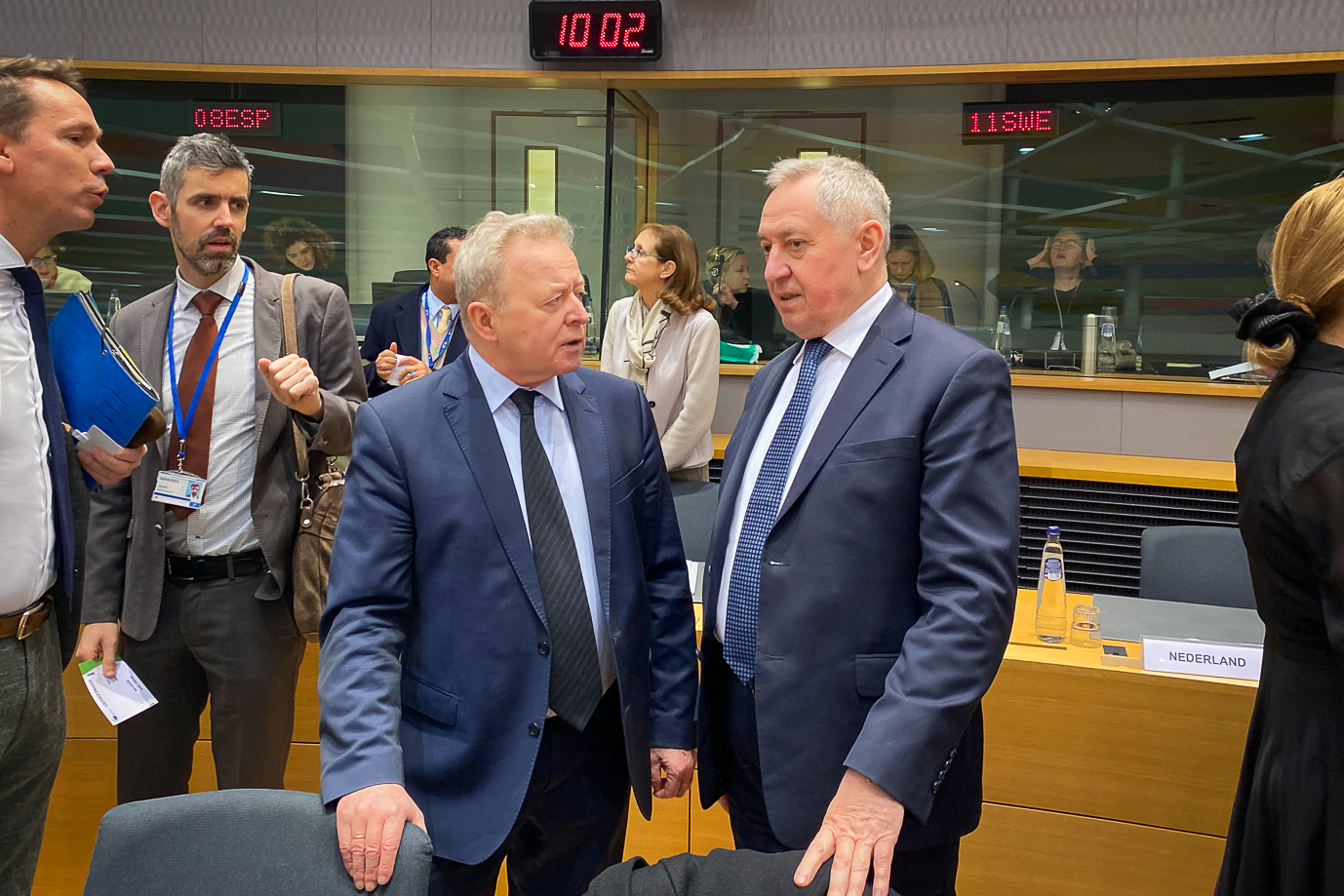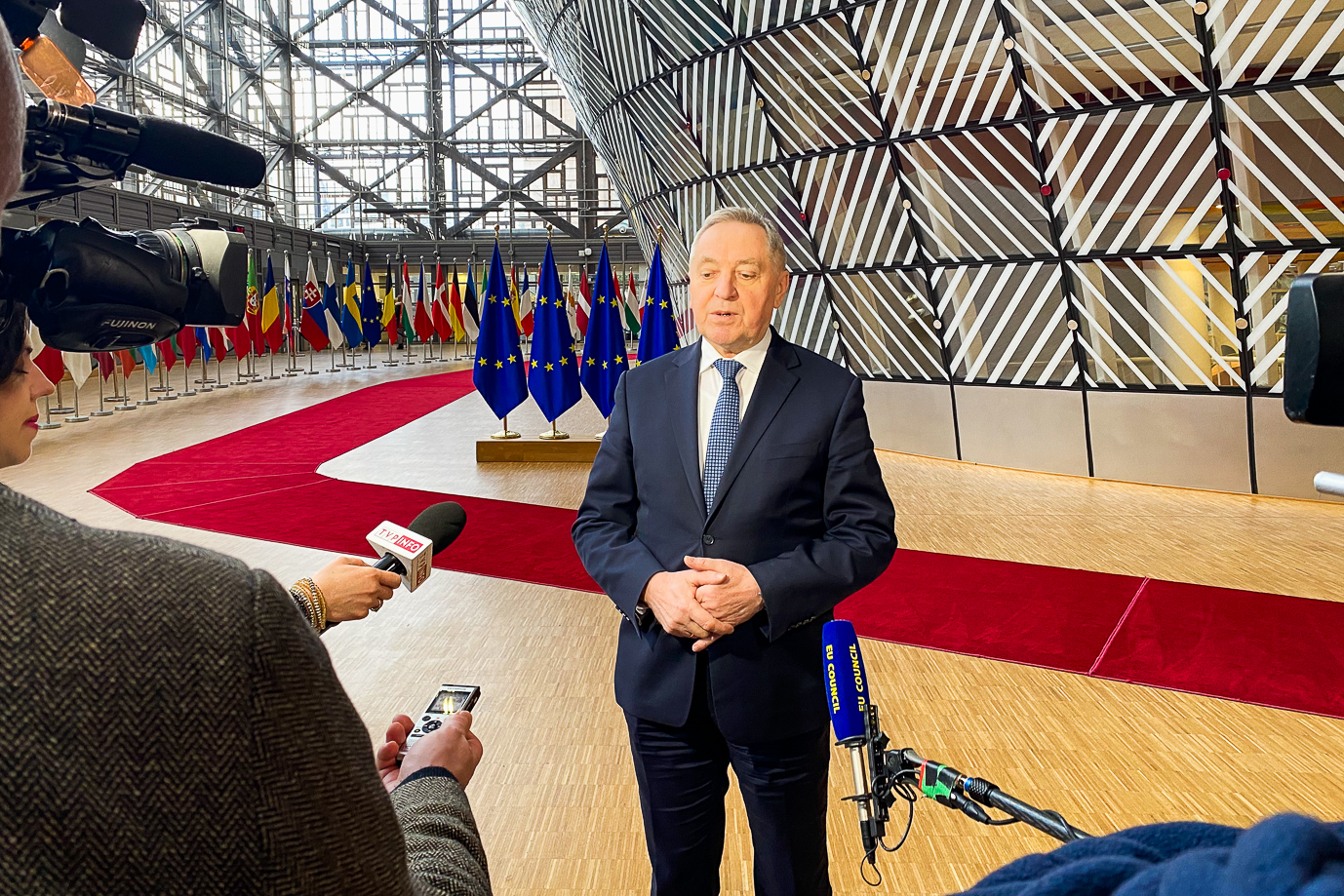The meeting of EU Ministers of Agriculture and Fisheries in Brussels
31.01.2023
During the AGRIFISH Council meeting, attended by Deputy Prime Minister, Minister of Agriculture and Rural Development Henryk Kowalczyk, Ministers exchanged views on the current situation in agricultural markets, especially in the light of the Russian invasion of Ukraine.

The main topics discussed were the situation in agricultural markets, the bio-economy and the agrarian aspects of the review of the Industrial Emissions Directive. The Ministers of Agriculture also took note of the information provided by the European Commission.
The Swedish Presidency
Sweden chaired the meeting of the EU Agriculture and Fisheries Council (AGRIFISH) for the first time, which took place yesterday in Brussels.
Poland's request
Deputy Prime Minister Henryk Kowalczyk presented Poland's request, prepared jointly with Bulgaria, the Czech Republic, Hungary, Romania and Slovakia, on increasing agricultural imports from Ukraine. He called on the European Commission to undertake action to support producers affected by excessive imports (falling prices, problems with grain sales) from the EU Member States bordering Ukraine.
"The outbreak of war and the blockade of ports have made the border countries not only transit countries but also destination countries for a large amount of grain and other agricultural products," the Deputy Prime Minister stressed.
The Head of the Ministry of Agriculture and Rural Development drew attention to the assistance that Poland and other neighbouring countries provide to Ukraine, namely, military and humanitarian aid and the reception of many refugees.
Deputy Prime Minister Kowalczyk emphasised that Poland and other countries in the region want to help in exporting agricultural products from Ukraine. However, this must not be at the expense of our farmers. The current situation is causing social unrest and protests.
Referring to the solidarity corridors, the Deputy Prime Minister pointed out that the objective of exporting grain from Ukraine to third countries has yet to be fully achieved, as much grain remains in the border countries. The smooth transit is indispensable so that the aid does not cause damage to the border countries.
"We have a moral obligation to help Ukraine, but this moral obligation must be linked to looking after the economic interest of farmers in Poland and other countries in the region," the Deputy Prime Minister added.
Proposed solutions
The Head of the Ministry of Agriculture and Rural Development stressed that the problem required a response from the European Commission, and he proposed the following solutions:
- the possibility of regional (in countries directly affected by excessive imports) use of funds from the CAP crisis reserve to help farmers;
- the introduction of guarantee deposits for grain in transit;
- the EC's flexible approach to implementing the Common Agricultural Policy by the EU Member States, including production-related payments.
The European Commission has acknowledged that the influx of agricultural products from Ukraine is affecting the local situation. There has been an increase in imports of certain products, such as maize, especially in neighbouring countries. Therefore, the Commission announced that it is determined to propose the use of an agricultural reserve to benefit farmers in those countries affected by the large influx of cereals and oilseeds from Ukraine.
Bio-economy
The Ministers discussed opportunities related to the bio-economy in light of current challenges, focusing on rural areas.
The EC pointed out the need to signal to society the importance of the bio-economy in developing products that limit environmental damage and sustainably use natural resources. It underlined the need to involve farmers in the creation of new value chains and stakeholders from all potentially affected sectors in bio-economy development and to raise public awareness of the issue.
Poland's position on the bio-economy
Deputy Prime Minister Henryk Kowalczyk stressed that the main challenge for the development of the bio-economy was the cost of implementing new solutions and practices, requiring securing adequate funds to support the changes and necessary investments.
According to the Head of the Ministry of Agriculture and Rural Development, basing the bio-economy in agriculture on the use of biomass, post-production waste, innovation, and digital solutions will combine energy, economic and social objectives, reduce greenhouse gas emissions and increase the energy independence of agri-food producers and processors.
"Therefore, the EU should include investments for these purposes in the framework of the EU REPower and plan appropriate measures in the CAP after 2027," he added.
The Head of the Polish Ministry of Agriculture and Rural Development stressed that bio-economy solutions are part of the response to the challenges and needs caused by the war in Ukraine. He pointed out that agriculture and forestry should provide biomass, raw materials for biogas, biofuel production, and other types of renewable energy. The production of energy from sources other than fossil raw materials has become a strategic activity and part of the strategy to become independent from Russian supplies.
The Industrial Emissions Directive
The Presidency briefed the Ministers on the state of play on the agricultural aspects of the review of the Industrial Emissions Directive. A ministerial debate on the subject was also undertaken.
Poland's position on the Directive
Deputy Prime Minister Henryk Kowalczyk stressed that Poland is opposed to extending the current scope of the Directive to include cattle rearing and breeding and changing the current thresholds provided for poultry and pig rearing and breeding because of the particular importance of agricultural production in the context of maintaining food security.

